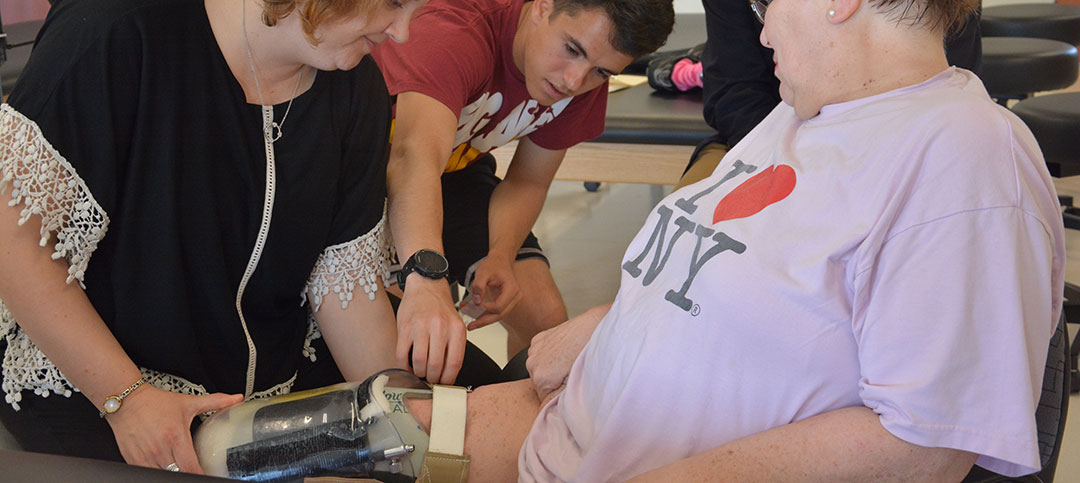Biomedical engineering integrates engineering principles and design concepts with medical and biological sciences to advance healthcare treatment. Biomedical engineers are integral in the development and innovation of equipment, devices and computer systems, and software in the healthcare field while closing the gap between engineering and medicine.
The University of Mount Union’s biomedical engineering major is designed to foster an innovative mindset while offering the crucial knowledge to successfully impact this rewarding and high-growth field. Our biomedical engineering faculty at Mount Union is an outstanding group with expertise in the fields that make up biomedical engineering such as:
- Bioinstrumentation
- Biomaterials
- Biomechanics
- Clinical Engineering
- Rehabilitation engineering
- Systems Physiology
The biomedical engineering major is housed in the School of Engineering.
Biomedical Engineering Degree Quick Facts
The biomedical engineering degree requires 130-credit hours of coursework, which also fulfills the University’s requirements for its general education program, the Integrative Core. Mount Union’s biomedical engineering major provides an experience that stems from its “Four Pillars of Exceptional Engineering Education.”
Why Choose Engineering at Mount Union?
- 100% placement rate to careers in industry or graduate schools for the class of 2019
- Over 94% placement rate in paid engineering internships
- Small classes with strong bonds between the students and faculty members
- Intense, hands-on education through projects, labs, internships, and field experiences
- Strong liberal arts culture that emphasizes graduating students with strong communication skills
- New and state-of-the-art labs, housed in a recently-renovated engineering building and a separate engineering lab facility
- Yearlong capstone senior design courses with projects directly from industry, narrowing the gap between real-world engineering, and education
